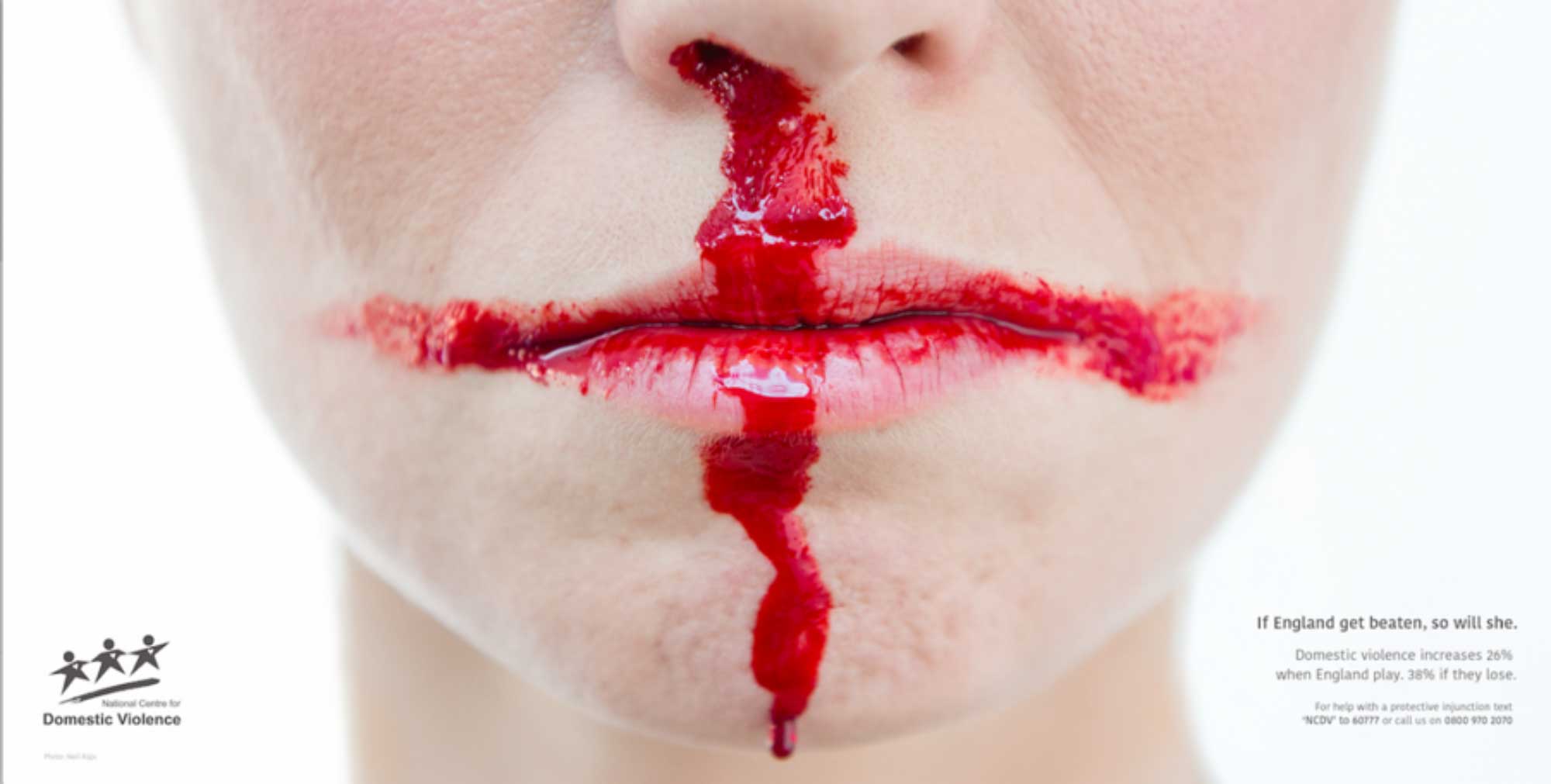**By Hannah Young, Creative Copywriter**
There’s a shocking statistic making the rounds at the moment. Domestic violence against women goes up by 26% when the football’s on. By 38% when they lose.
J Walter Thompson London has highlighted this link in a reactive campaign for the National Centre for Domestic Violence.
(image: ouch.jpg)
Clearly, there’s a very real opportunity here for a brand to reach out to women at risk of domestic violence and offer help. But this isn’t how.
**Strategy isn’t slapping your insight on a poster
**
It’s an interesting insight. An ad agency’s dream, really. There’s a very clear window for a brand to talk about their product and do some social good. But that insight hasn’t been turned into a meaningful strategy. Instead, it’s been written on the advertising. Copied and pasted from the brief. No one’s digested it and considered what it means in the real world, for real women, away from advertising awards and striking photography.
How would a woman with a violent partner feel seeing this? Would she know what the National Centre for Domestic Violence can do to help her?
**Talk to the audience. In their language**
‘If England gets beaten, so will she.’
I wonder if they tried ‘If England gets beaten, so will you,’ and realised how insensitive it was to talk to victims like that. Instead, they’ve gone with a general ‘she’. So instead, the ad talks to everyone but domestic abuse victims. Surely the true target audience for the National Centre for Domestic Violence. All for the sake of a bit of wordplay.
To prove it, the call to action – the useful, potentially life-saving bit – is right at the bottom in tiny print. Really tiny. And it’s in legal jargon. ‘For help with a protective injunction…’ A what now?
It’s an attention-grabbing ad, sure. (link:http://theinspirationroom.com/daily/2006/nike-rooney-st-george-cross/ text: It’s been done before), but it makes you look which is arguably half the job. And it’s already being shared among fellow ad-landers.
But I’ll be surprised if the National Centre for Domestic Abuse see their helpline calls go up off the back of the campaign. On the other hand, I won’t be surprised if JWT London win a bunch of awards for it.
But is that truly the mark of good advertising?
